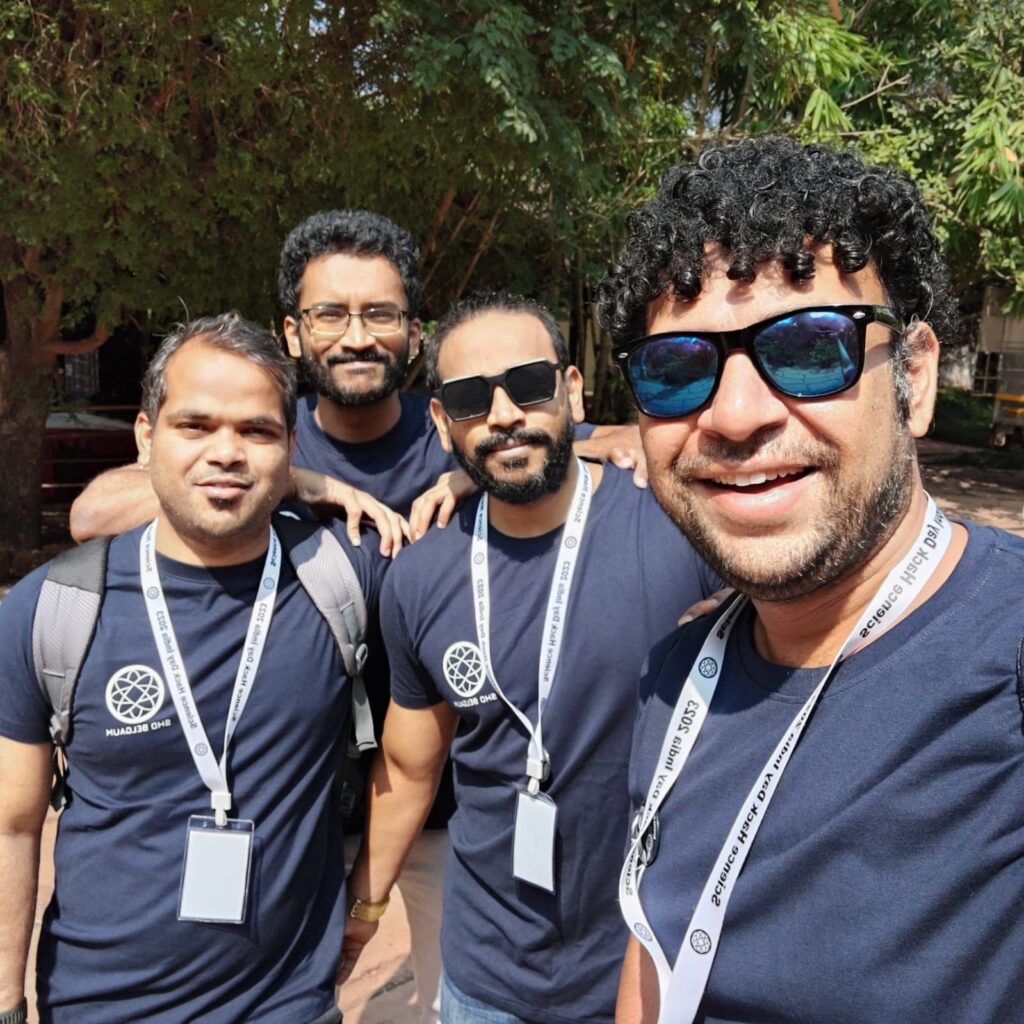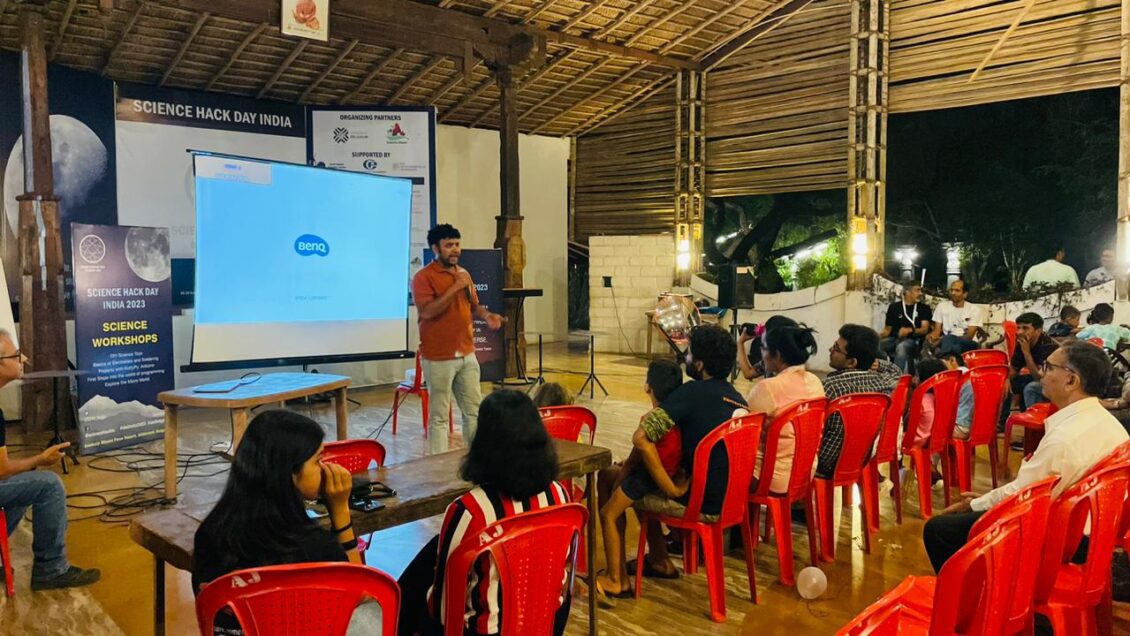Combine plastic food delivery containers, aluminum foil, paper, some wire, and what do you get?
For Ramakrishna Podila, an associate professor in the Clemson University Department of Physics and Astronomy, the off-the-shelf materials produced a simple electric generator, a fun and interesting way to engage K-12 students in science, and an innovation prize at the Science Hack Day in Belgaum, India.
The first Science Hack Day was held in London in 2010. Since then, scientists, designers, developers, engineers and anyone excited about making things with science has participated in 127 events in 50 cities in 31 countries. No experience in science or hacking is required to participate in Science Hack Day.
During the event, participants organically form multidisciplinary teams over the course of the weekend and then rapidly prototype an idea.

Podila didn’t know anything about Science Hack Day until he met one of the Belgaum event organizers at PyCon 2023, a conference for people who use and develop the open-source Python programming language.
“I wanted to participate because I thought maybe something like it could be organized at Clemson,” he said. “Also, I was told there was going to be a lot of kids there and it’s great to interact with kids because they are very open and ask questions, and sometimes I learn more than they do.”
One member of Podila’s Science Hack Day four-person team was former Clemson student Bhanu Kishore K.
Simple hack
“Some of the projects required programming or were dangerous with plasma and high voltage. I wanted a simple hack that conveys something new, scientific and exciting, but also something that kids could put together without having to invest a lot of money,” Podila said.
The project titled “Triboelectric Generator” was a simple device made from everyday materials and used to convert low-frequency waste random mechanical energy into electricity. The project used CSpark Research’s SEELab 3.0 device with a smartphone as an oscilloscope, which is a device that graphically displays electrical signals and shows how those signals change over time. Podila’s team won the most innovative hack prize for presenting their triboelectric generator made from waste materials.
Proof of concept
“We’ve built this type of triboelectric generator before in our lab using high surface- area, nanosized parts that is supremely efficient. This was a cheap version of that. It’s not highly efficient, but it gives you the proof of concept. And the proof of concept is so mind-boggling that it should excite a kid to think deeply about what is happening at the fundamental level,” Podila said.
Podila said he wanted to use the simple device to challenge children to investigate science deeper so they understand how it works rather than explaining it by using words they’ve heard but don’t truly know.
“Kids are taking words from different books or videos in the name of learning. They’re not really learning how to investigate,” he said. “The whole idea was to use this simple device to challenge the kids to explain it without relying on any of the fancy words such as electrons and photons. Nobody could explain it to me. They were able to see that they have taken a lot of terms for granted, that they believed in some authority. They learned you cannot take somebody’s word for it, that you have to investigate yourself and know that it is true.”
In-depth understanding is critical because that’s where new science comes from, he said.
“If everybody accepted what was there before, we wouldn’t have any Einsteins.”
Podila hopes to organize a Science Hack Day at Clemson so the local community can learn more about scientific research from the College of Science.
Get in touch and we will connect you with the author or another expert.
Or email us at news@clemson.edu

